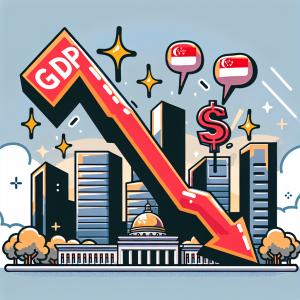Singapore’s commercial property market is on the brink of a transformative phase as it heads into 2025, driven by a combination of robust economic fundamentals, government support, and evolving investor preferences. Despite the backdrop of global economic uncertainties, Singapore’s reputation as a global financial hub continues to attract significant capital inflows. Political stability and pro-business policies have fortified the market’s resilience, making it an attractive destination for both local and international investors.
A notable trend shaping the commercial property landscape is the diversification of investment into alternative asset classes. Sectors such as data centers, life sciences, and logistics are witnessing substantial growth, fueled by technological advancements like artificial intelligence and the rise of e-commerce. While demand for traditional office spaces has experienced a slowdown, there remains a steady interest in sustainable developments located in core business districts. Properties that meet sustainability certifications are particularly appealing to institutional investors who prioritize environmental, social, and governance (ESG) compliance.
Government Initiatives and Market Stability
The Singaporean government plays a crucial role in fostering a conducive environment for commercial property growth. Incentives for environmentally friendly developments and sustainable urban planning are integral to the nation’s strategy to align with global climate initiatives. Regulatory measures, including the Additional Buyer’s Stamp Duty (ABSD) and Seller’s Stamp Duty (SSD), help maintain market stability by curbing speculative investments and promoting long-term ownership. These initiatives not only support a balanced market but also encourage developers to invest in sustainable projects, further enhancing the appeal of Singapore’s commercial real estate.
The Luxury Market and Co-Living Trends
Amidst the broader commercial property landscape, the luxury condominium market has emerged as a bright spot. Limited supply coupled with high demand from ultra-high-net-worth individuals has driven prices upward, making this segment particularly attractive for investors. Additionally, the co-living trend is gaining traction, appealing to younger demographics who prioritize flexibility and community living. This shift in living preferences is prompting landlords to adapt their offerings, ensuring they meet the evolving needs of tenants.
Recovery of the Hospitality Sector
The hospitality industry in Singapore is also poised for recovery as the city-state redefines itself as a premier destination for tourism. With efforts to enhance visitor experiences and promote local attractions, the hospitality sector is expected to benefit from increased foot traffic and international travel. This recovery is anticipated to further bolster the commercial property market, as hotels and related businesses see a resurgence in demand.
Conclusion
Looking ahead, Singapore’s commercial property market is well-positioned to navigate the challenges of a changing global landscape. While investor caution may lead to more selective acquisitions, core assets in prime locations are expected to remain highly sought after. The PropertyGuru Asia Property Awards highlight Singapore’s leadership in real estate development, particularly in sustainability and innovation, solidifying its reputation as a forward-thinking market. As 2025 approaches, the combination of strong fundamentals, government support, and a focus on sustainability will continue to drive growth in Singapore’s commercial property sector, ensuring its status as a premier investment hub in Asia.





